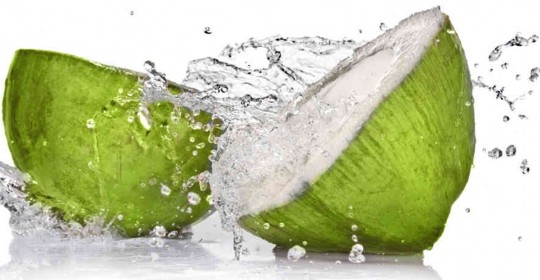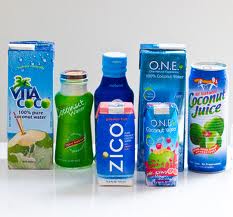
The Hydration Debate
Most of us know that staying hydrated is an essential component of athletic performance. But what drink is the most suitable to do so?
One factor in gaining post exercise rehydration is for drink volume to be greater than the volume of fluid that you lost during the workout. It is also important to replace electrolytes lost in sweat, like potassium and sodium.
Gaining popularity recently among both professional and recreational athletes is coconut water, which is marketed as an “all-natural, nutrient-packed” form of hydration. It is high in potassium, low in calories, and fat free, which appeals to most people. Further, compared to sports drinks it has less sugar. The problem is, research evidence that coconut water is better than plain water or sports drinks for hydration is lacking.
An early study from the Journal of Physiology, Anthropology, and Applied Human Science compared the effectiveness of fresh young coconut water and carbohydrate-electrolyte beverage to that of water on whole body rehydration and blood volume restoration after exercise-induced dehydration. Eight healthy males exercised at 60% of their VO2 max (maximum rate of oxygen consumption) in the heat until 3% of their body weight was lost. They then sat for two hours and consumed a certain amount of plain water, carbohydrate-electrolyte beverage or coconut water on three different occasions within one week. Blood and urine samples, and body weight of each subject was taken before and after exercise and at 30 minute intervals throughout the rehydration period. They found that although blood volume restoration was better with coconut water, it was not statistically different from the other two fluids.

Another study, from Medicine and Science in Sports and Exercise found that coconut water replaced body fluids as good as typical sports drink, and slightly better than water. Although, to truly stay hydrated you need to drink more coconut water than if you drink plain water.
Although coconut water is rich in potassium, it is low in carbohydrates and sodium which are two essential components for those who are involved in endurance training or prolonged aerobic exercise. When you exercise for three hours or longer in the heat, your body requires more simple carbohydrates and electrolytes which coconut water does not have. If you are sweating a lot, neither coconut water or typical sports drink will have enough electrolytes to keep you going. Food is likely the only way to restore electrolytes lost when exercising at this high intensity (i.e., marathon runners).
That being said, coconut water may be a good source of hydration for recreational athletes, where the intensity of the exercise is not as high. On its own, coconut water is not the best for those involved in endurance or prolonged aerobic exercise as it is missing critical carbohydrates and electrolytes. At the end of the day, plain water does a fine job in hydrating, but when intensity of exercise increases, other supplementation is necessary to gain back the electrolytes lost.
Leave a reply →




